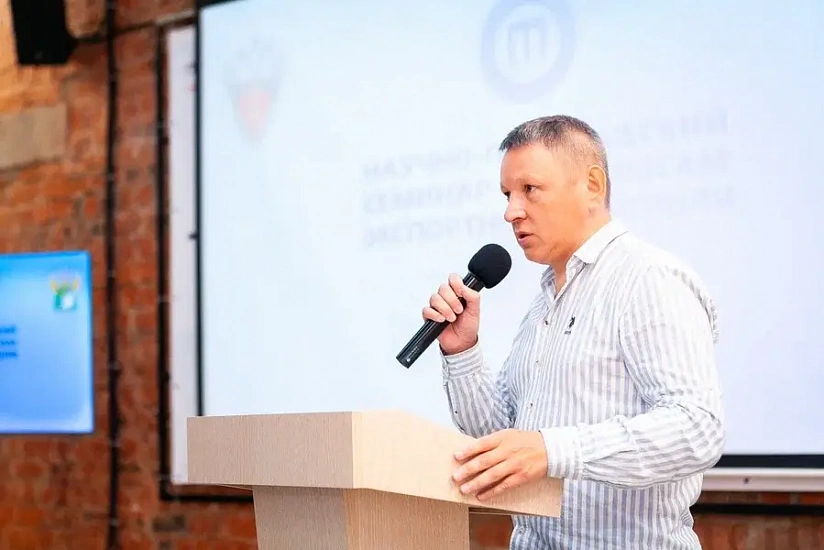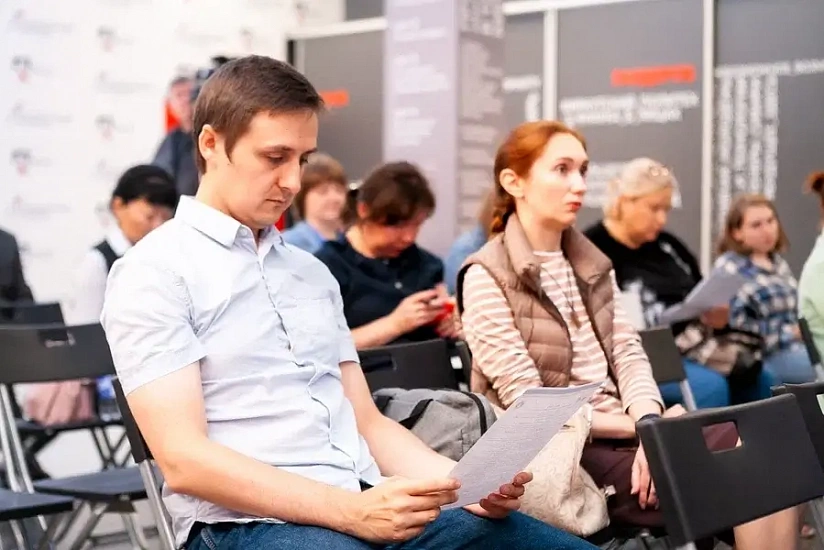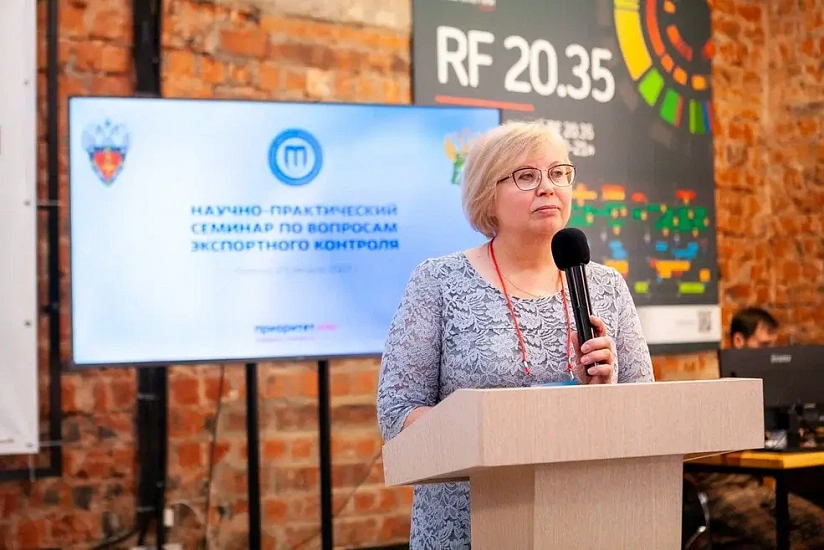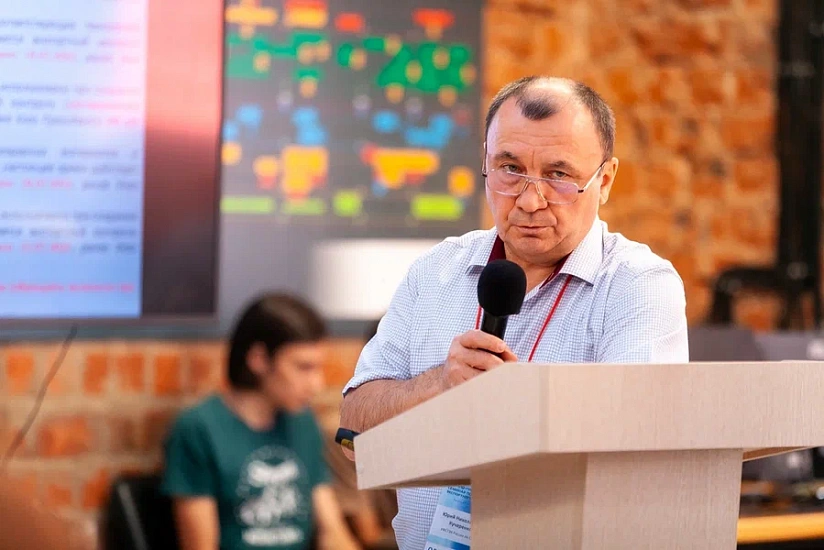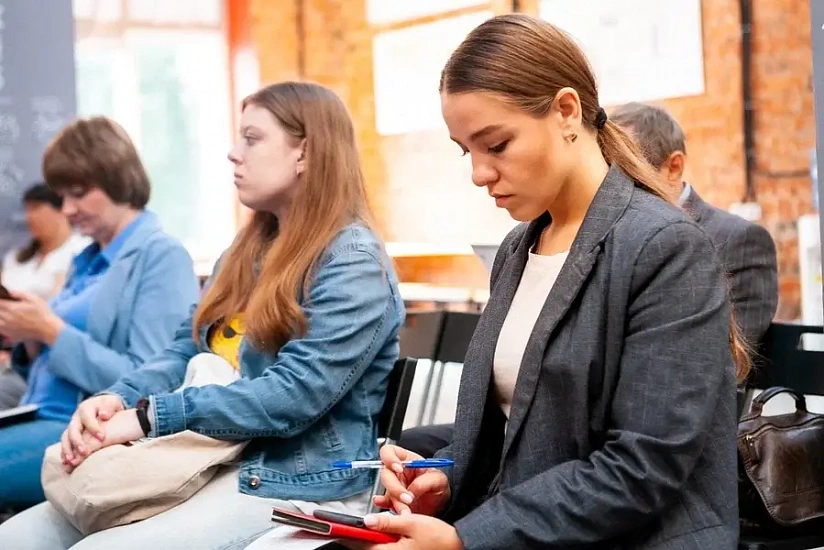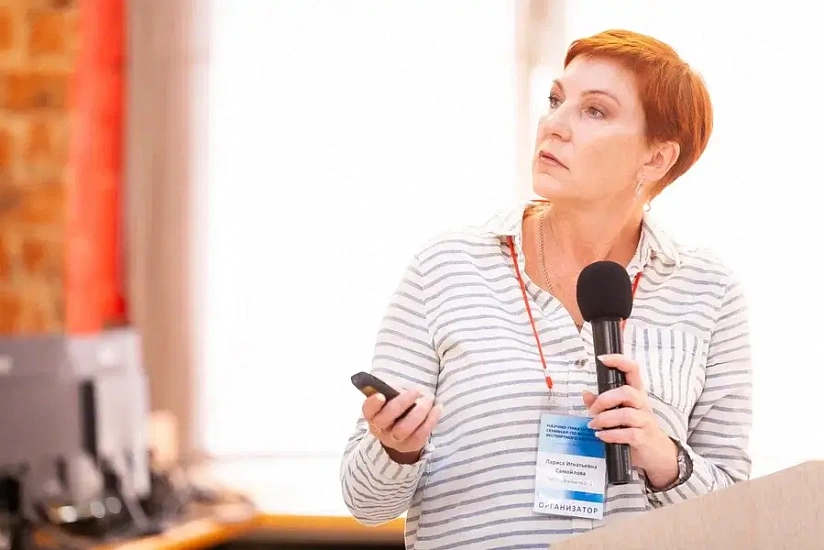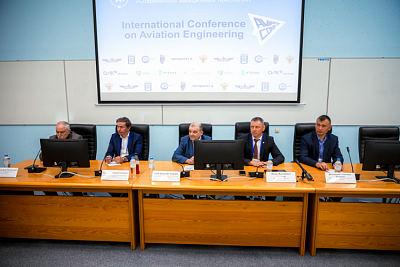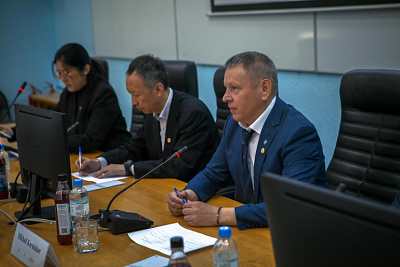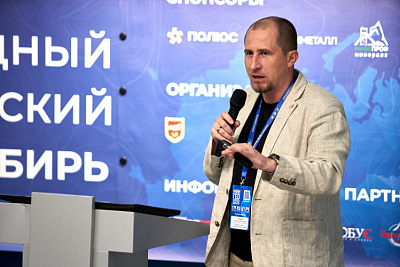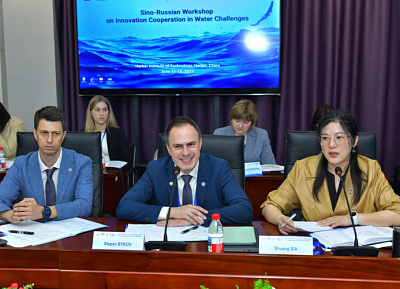Export control issues were discussed at a seminar at INRTU
The forum was organized by Irkutsk Polytechnical University, the Directorate of the Russian Federal Service for Technical and Export Control in the Siberian Federal District, and the Siberian Customs Directorate. Seminar participants included representatives of universities, academic institutions, expert accredited organizations, and export control specialists.
Welcoming the speakers and attendees, INRTU Rector Mikhail Korniakov wished them a productive work:
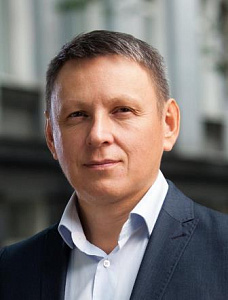
"Today, participants in foreign economic activities need to take into account national and international security issues and comply with legislation.
Irkutsk Polytechnic has been training personnel for foreign countries for decades, being the most open platform for FEA. We are honoured to be among the organisers of the forum, where we will be able to discuss the peculiarities of working with meaningful information."
Yury Kucherenko, a representative of the FSTEC Department of Russia in SFD (Novosibirsk), spoke about changes in the legislation regulating foreign economic relations. The speaker commented on articles of the Federal Law № 183 "On export control" fr om July 18, 1999, set forth in the new edition. Yury Kucherenko also briefed the audience on the special economic measures that are applied to protect national interests.
In the practical part of the report the lecturer described the unlicensed export regime, conditions and procedure of inclusion of exporters into the Register of the FSTEC of Russia. Yury Kucherenko added that six organizations in the SFD have accredited export control programs. He compared scheduled and unscheduled inspections according to two criteria - basis and subject, and described the work of the commissions during the coronavirus pandemic.
The speaker illustrated theoretical aspects with the example of universities. Scientific schools work with foreign universities on the implementation of educational programs, including academic mobility, development and technological projects. Yuri Kucherenko provided a list of specialties, the information of which falls under restrictions in foreign economic activity. The second report contained information on the examination of scientific and technical materials for open publication.
Larisa Samoilova, senior state inspector of the export control department of the Department of the Federal Service for Technical and Export Control in the Siberian Federal District, continued the topic. She devoted her presentation to the rules of accounting for foreign trade transactions. As the speaker noted, organisations are obliged to keep a logbook wh ere they document the fact of transactions with foreign partner companies. The records must contain information on the parties to the transaction, the subject and the results of foreign economic activity. As a sample of how to fill in the journal, Larisa Samoylova presented the records for export control purposes for scientific publications. Also during her speech, Larisa Samoilova spoke about the legal liability for violation of legislation in this area.
Viktor Shcherbinin, Export Control Commissioner at National Research Tomsk Polytechnic University, shared his experience in carrying out foreign economic activities.
Larisa Chechetkina, advisor to INRTU's vice-rector for international affairs, spoke about the work of the university's internal Export Control Commission (ECC).
According to Larisa Chechetkina, about 1.5 thousand citizens of 49 countries studied at Irkutsk Polytechnic in the academic year 2021-2022. Irkutsk Polytechnic's educational programs are popular with students from China, Mongolia, and CIS countries; in recent years, students from Africa have shown interest in studying there.
She added that the CEC was established at INRTU to effectively market educational services in accordance with the requirements of the Russian legislation:
"The commission's expert members review scientific and technical materials prepared by the university's staff before they are sent to a foreign university and make a decision. We also examine curriculum for a certain list of educational programs that fall under export control. Our area of interest also includes control over the execution of international agreements and contracts."
Denis Romanenko, a representative of the Siberian Customs Directorate (Novosibirsk), joined the seminar in an online format. He spoke about the peculiarities of customs control in 2022, improvement of online services and maintenance of personal accounts by participants in FEA.
Dmitry Mironov, an export control commissioner at the Institute of Theoretical and Applied Mechanics of the Siberian Branch of the Russian Academy of Sciences (Novosibirsk), supplemented the information with information on advanced training for export control specialists.
The program of the event also included two speeches by Anatoly Skripov, director of the Educational and Research Center for Expertise, Certification, and Quality Problems at Ural Federal University (Ekaterinburg). He invited his colleagues to consider foreign trade transactions, identification of goods and technologies (educational programmes) for export purposes.
The scientific workshop concluded with a discussion, during which speakers and attendees exchanged opinions on export control issues.
